Yet we lean on these markers. They’re useful, it seems. Just as my mind is eased when I know the lay of a foreign landscape before me, if by assessing people, I suppose it gives me a sense whether I fit within (or don’t want to be part of) the surrounding crowd. It lets the “me” feel prepared. As if we register how our persona meshes with the people who are in our presence.
But what about just “being”? Can I have the courage to let go of my own labels and not slap them onto others — whether strangers or familiar faces? Can we interact with one another, be engaged in the world, without notions of status or identity? Would the world unravel? It does seem some things would loosen; would that be so terrible?
And then there are all the costumes we wear… Glancing at someone, if I’m paying attention, I catch my “self” instantly and unconsciously, categorizing the person in view. Dozens of judgments can flit through my mind solely based on garb and how someone presents their self. Perhaps such assessing is a learned habit, even a skill of sorts, learned as a way to “protect” our selves? If we can “be ready” for the “other” then we know whether to have our guard up or down. We can discern whether we mesh with them or need to be careful and avoid engaging. It’s as if an ancient tribal survivalism is still directing us.
It’s akin to coming upon pleasant blossoms cautiously and trying to decide if we can get close or if we need to be careful of unseen thorns — maybe even a venomous snake is lurking in the foliage! And yet living is a risk; so do we avoid taking in the sweet scent of a flower out of fear of a possible, unrealized danger?
Our clothing and adornment are only the obvious outer layer. There’s our size, shape, hair, skin, ( Make-up? piercing? tats?); language or accent, the words they use, the tone of a voice, again more indicators. All this before we even engage, and then the names, titles and imposed definitions begin. As quickly, our reactions to all these perceptions begin directing responses, often before I’m even conscious of what I’ve taken in. Whoever this “I” really is, the apparent individual is often barely in control of his responses…
This idea of separate individuals, reinforced through our language and naming of people, and indeed the whole world we like to call “things” seems necessary. After all, it’s pragmatic and useful, and so intrinsic to how we navigate life that we seldom stop to question it. Yet when I do, it reveals all manner of falsehoods.
Names (and generally, words) are a more useful tool when their definition is consistent and unchanging. So we assume what they are applied to is also static, fixed, and solidly permanent. But, as non-duality and Zen Buddhism and many other traditions question: what about me is the same as when I was seven years old? Or twenty? Or fifty? And now? Our bodies defy this logic of sameness. We grow, we shrink, we gain weight, we learn skills, we “mature.” Even our skin is cycling through constantly to keep us healthy, our cells and bones constantly growing even as their outer forms may seem consistent.
So what holds our place as a thing? Certain aspects of our behavior or persona? But how fixed are these really? I know for me these have shifted and varied, not only through the years, but the seasons, weeks, and even day to day and moment to moment. (If one has doubts, just check with someone who’s lived with you.) So what part of “me” is actually enduring? Is it my thoughts? They’re not static, far from it. No matter how much I try, I can’t contain them in one place: they’re continuously floating in and out.
Do my emotions hold solid? Is that even a question?! So if not our body; not our minds or thoughts; not our fleeting emotions…then what are we really defining with these labels? At best they are a useful tool, at worst they put vast constraints and limitations on our Being. And yet there is an aspect to us, our awareness of ourselves, that somehow transcends (or utterly embraces and is the foundation for) all our thoughts, emotions, and our physical body. “It” what we refer to as “I” embraces our sense of self, using the crude tool of words some understandings refer to it as an “awareness of being.” This idea resonates for “me.”
But we are so inculturated and addicted to our powerful and useful tools of words and identification, turning all life into nouns and things, that we fail to even realize we can turn them off. Contrary to how our ego and culture often represent of our perspective, our minds are filters that minimize what comes in. The majority of energies we’re swimming in are blocked out. Every new scientific tool of microscopic inquiry or measure of waves of radiations verifies how much we don’t take in. The aggregation of the ones we accept to attend to our daily needs becomes what we consider the world or universe. But words and the tiny aspects that randomly garner our focus are not reality! They are only a means with which we navigate it.
I take a walk and hear a birdsong, and even as the beauty of it reaches my ears, my mind often jumps to identify what type of bird made the sound. I wander beneath a tree and as the sunlight sparkles through the leaves above a cool breeze graces my skin, and yet again I’m caught in the mind-filled habit of identifying the species (as opposed to be “mindful” and just Being in the moment). Another variation might be walking the same path and NOT noticing the birds or trees or sun or breeze because “I” am so thoroughly cloaked in thoughts or wrapped up in identifying my concept of me with an emotion (joyful or tragic) that they are filtered out of focus.
Nowadays we need not even go through this minor brain exercise and can use an app to tell us this “crucial” piece of information. No surprise really, in a world driven and impressed by intellectual prowess. But at what point is all this unquestioned information and “knowledge” not genuinely useful and just a distraction? Sometimes I see a silver lining with AI and technology: it could force a reckoning of skills, and perhaps reduce our over-valuing of information, and root us more in Being. But somehow it feels more likely to serve as a source of ever more available distractions to keep us from “Being.”
Just as with people, naming life forms constrains and often limits our experience and engagement and sense of interrelationship. When I examine it deeply, the very concept of “things” is seen as a convenient falsehood. All life is change and all “things” are ongoing wholly interwoven processes of growth; verbs not nouns. A tree may seem familiar but it also is fully integrated with the sunlight, soil and micro biome. Mountains and rocks and rivers are all growing or shrinking, ever-changing, but not on a human-lifetime centered time-scale. — it seems to me it mostly depends on the metric or measuring tool we use to define the demarcation boundaries of a living thing. As I’ve questioned before, where does a river begin and end, or a cloud? All we know is verbs, or perhaps one vast verb: from the galaxies to ultra-microscopic particles to photons and quarks.
There’s a river that runs through my hometown. I feel attracted to the energy of the flowing water. I love to wander beside it and even float in it during warmer months. Maybe “I” am drawn to it because it offers an easy access for me to shed my “costume”, (not get naked, but rather) to just be). Even so I still fall into the name game, a form flies above and my mind will jump to “what bird was that?” But for some reason when I’m removed from the treadmill of our society, simply standing on a river bank, or walking in the woods, I more readily am aware of a “me” that has fewer labels. At times I lose track of the whole name game. The critters, birds, trees, and river and clouds don’t ask my identity, nor care what I “DO” — and though I like to listen to all of them, it’s less an inquiry or even a dialogue, and more of an immersion of our shared presence within a vaster, limitless universe.
The challenge for me is how to maintain this openness while in the currents and flow of modern life? There are healthy aspects to using these “tools” of emotion and certainly necessary, essential practical thoughts, and needs of our bodies: What shall I eat today and where will I acquire the food? Where will I sleep and what actions make that possible?
But the trick is distinguishing these necessary acts from my auto-pilot monkey-mind, ever-shifting emotions, and habits or actions that don’t serve a life-affirming purpose. The ones I engage in as a way to unconsciously distract my attention away from allowing my ”self” to float within the whole. I avoid this seeming diminishment of my individuality via any number of habits and distractions. I suspect because sometimes issues are too fearful (to my ego and much of our culture at large), but other times they’re simply more innocuous, engrained habits.
Imagine the look one gets, if, in response to the generic question “What do you do?” We answer “Oh, I just like being aware.” (Honestly having been around creatives and art folks my entire adult life, I have heard variations of this exchange.) Maybe it’s disturbing socially because it disrupts the whole driving order of modern western culture. And personally it essentially minimizes or tends to dissolve the importance of my separate self (ego). Similarly, it defies two crucial concepts of our social order and system: rugged individuality and competition, and replaces these with integrated relationships, a communion of life, and a sense of wholeness and peace.
For this “me” a sincere look at the system we have and the environmental havoc and suffering into which it’s sweeping us reveals what’s on the horizon. The deeper question for me is: how long before I fully embrace the reality of my place within a more integrated loving flow?
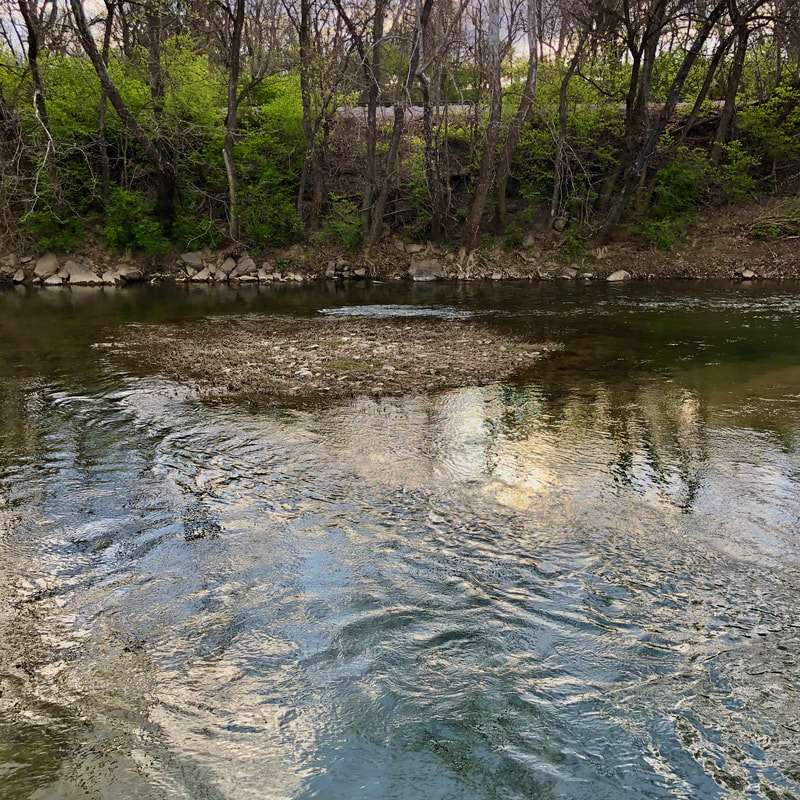
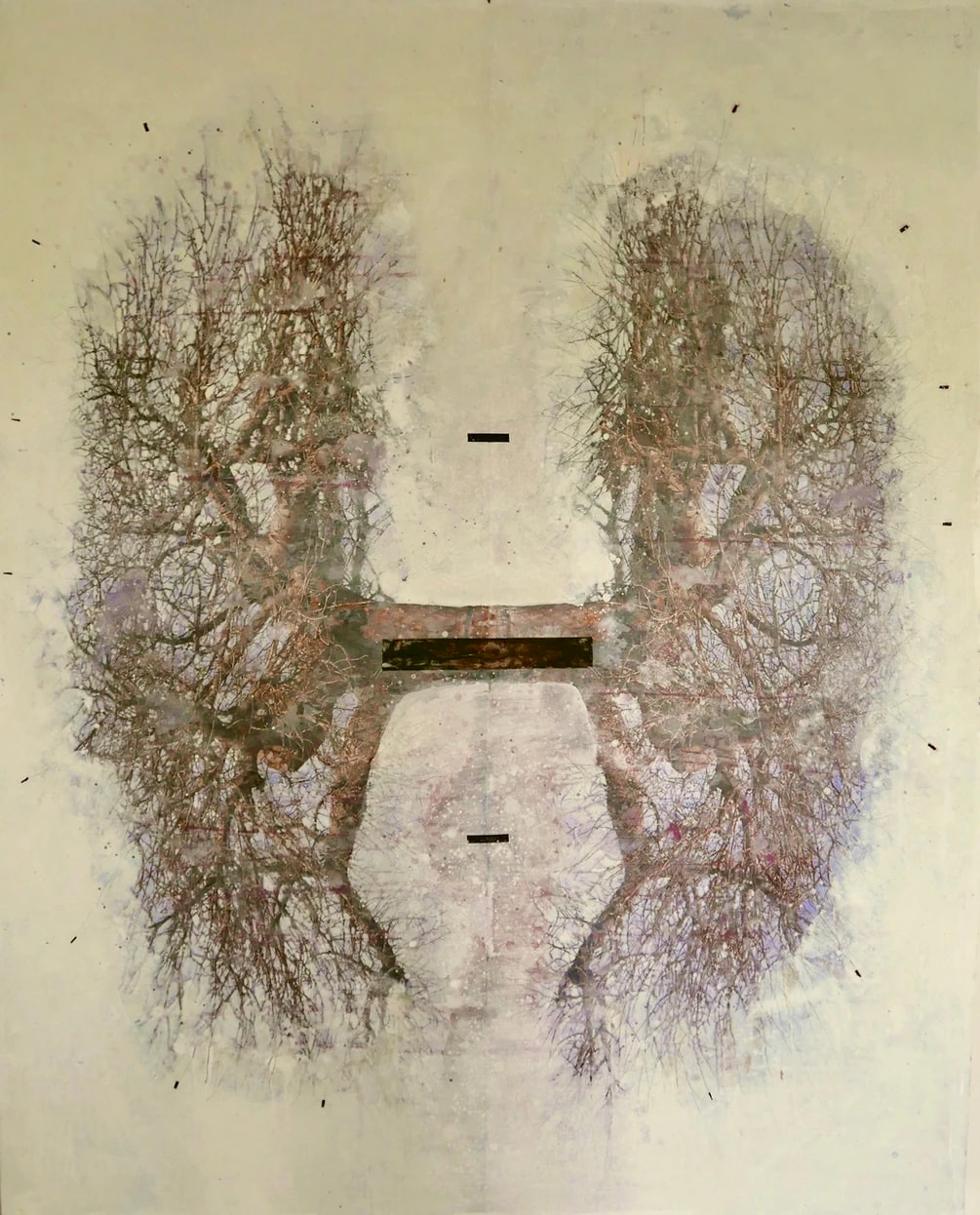
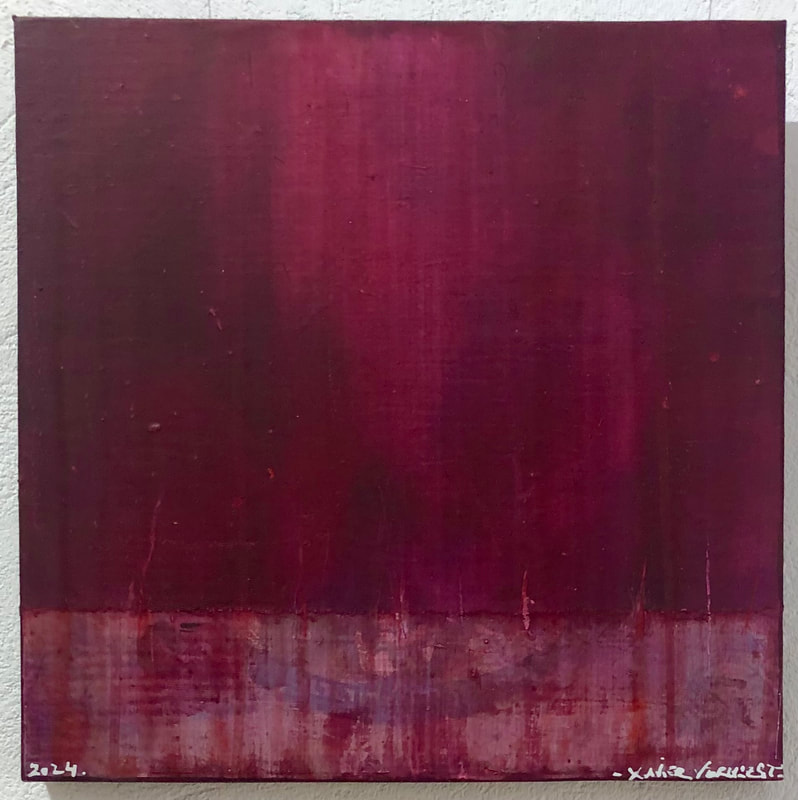
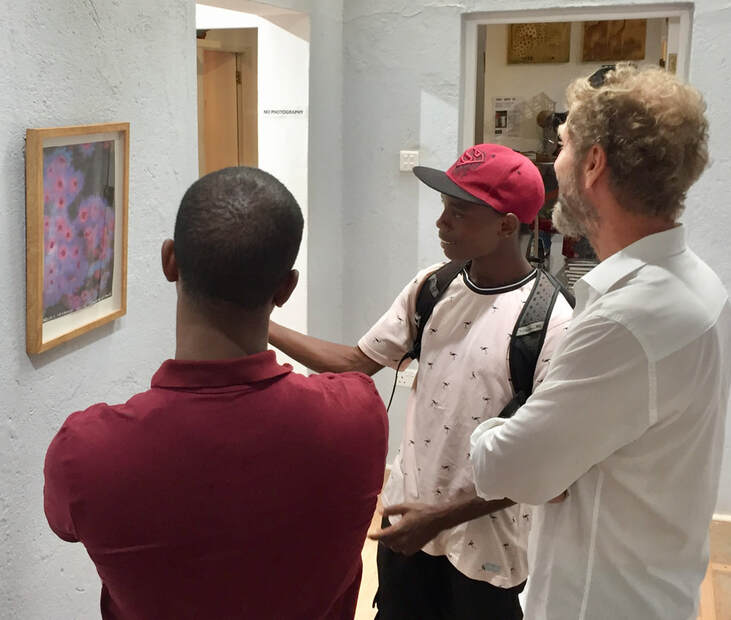
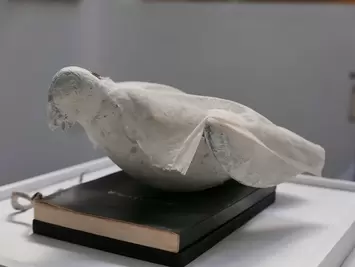
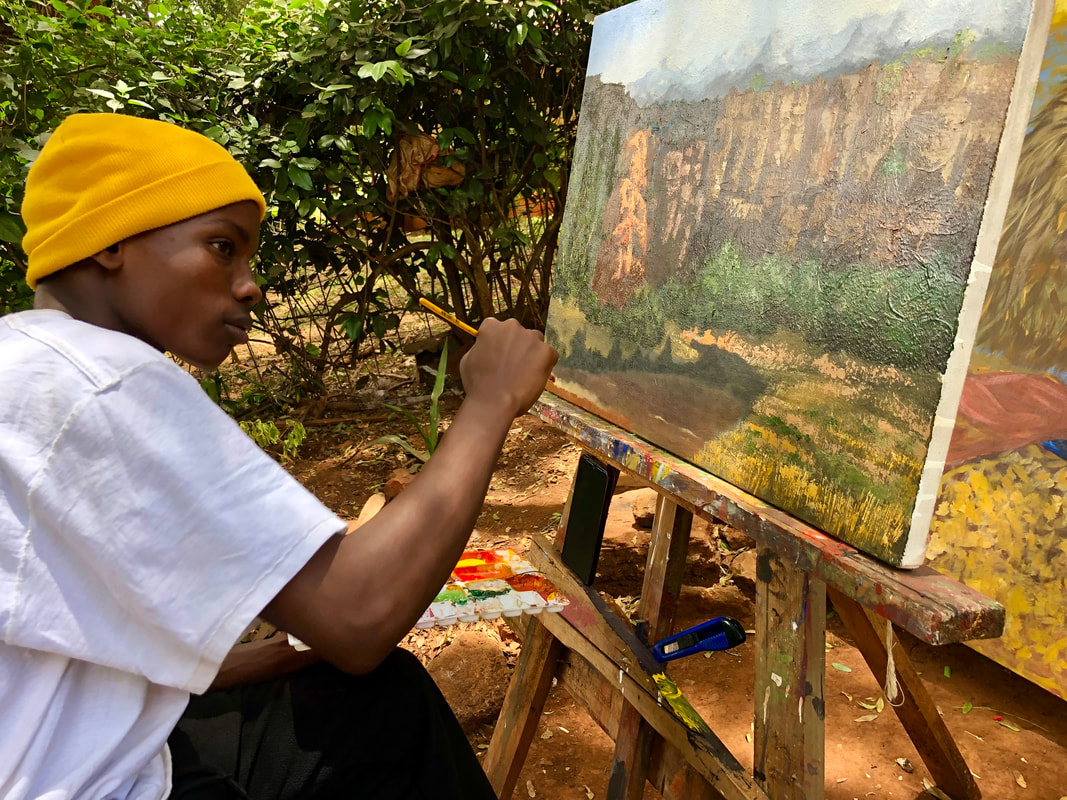
 RSS Feed
RSS Feed